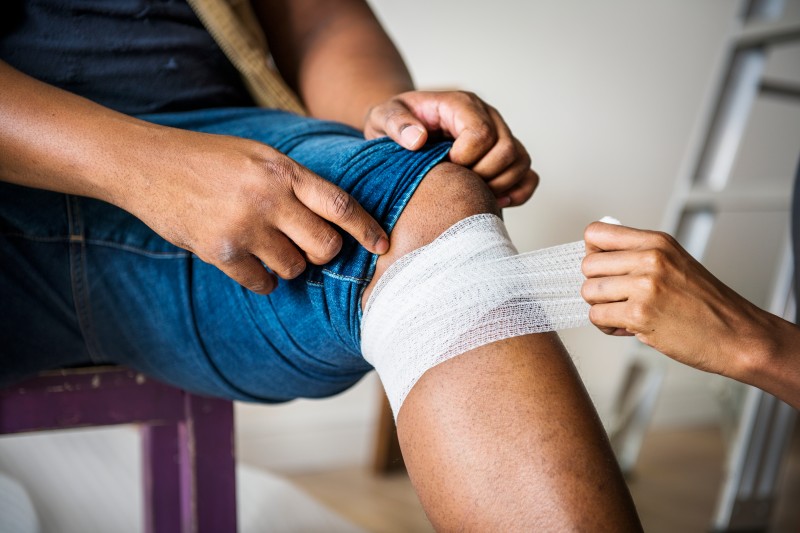Minor injuries are a part of everyday life. Whether it’s a slip while walking, a bump on the head, or a sprained ankle during sports, these small accidents can happen to anyone at any time. While they are usually not life-threatening, minor injuries still require proper attention and care to ensure quick recovery and to prevent complications. In this article, we’ll explore some of the most common minor injuries, their relief methods, and when you should visit a minor injury clinic for professional help.
What Are Minor Injuries?
Minor injuries refer to injuries that are not severe enough to cause long-term damage or require emergency hospitalization but still cause discomfort, pain, or limited mobility. Examples include small cuts, bruises, mild sprains, and superficial burns. Though these injuries are often managed at home, they should not be ignored. Proper first aid and follow-up care are essential to avoid infection, stiffness, or worsening of the condition.
Common Types of Minor Injuries
1. Minor Head Injury
A minor head injury often occurs after a fall, bump, or sports-related accident. Symptoms may include a mild headache, dizziness, or a small bruise on the scalp. While most minor head injuries heal quickly with rest and ice packs, it’s important to monitor for warning signs such as nausea, vomiting, confusion, or worsening pain. If these appear, immediate medical attention is required.
Quick Relief Tips:
- Apply an ice pack wrapped in a cloth for 10–15 minutes.
- Rest in a quiet, dark environment if dizziness or headache persists.
- Avoid strenuous activity for at least 24 hours.
2. Minor Knee Injuries
The knee is particularly prone to injury, especially among athletes, runners, and people engaged in physical work. Minor knee injuries often include sprains, strains, or small bruises. These can cause temporary pain, swelling, or stiffness.
Quick Relief Tips:
- Use the R.I.C.E method: Rest, Ice, Compression, Elevation.
- Wear a knee brace for support if needed.
- Over-the-counter pain relief medication can help reduce swelling.
- Gentle stretching and physiotherapy exercises may speed recovery.
3. Minor Ankle Injuries
Twisting or rolling an ankle is a common issue, often resulting in minor ankle injuries like sprains or mild ligament strains. Symptoms include pain, swelling, and difficulty putting weight on the affected foot.
Quick Relief Tips:
- Immediately rest and avoid walking long distances.
- Apply an ice pack for 15–20 minutes, several times a day.
- Wrap the ankle with a compression bandage for support.
- Elevate the foot above heart level to reduce swelling.
4. Cuts, Scrapes, and Bruises
These are among the most frequent minor injuries. While they may look alarming, they usually heal quickly with the right care.
Quick Relief Tips:
- Clean the wound thoroughly with mild soap and water.
- Apply an antiseptic solution to prevent infection.
- Cover with a sterile bandage or dressing.
- Replace the dressing daily and keep the wound dry.
5. Muscle Strains and Sprains
Overstretching or overexerting a muscle during exercise, lifting, or sudden movement often results in strains or sprains.
Quick Relief Tips:
- Rest the injured muscle for a few days.
- Apply ice for short periods to reduce swelling.
- Perform light stretching once pain decreases.
- Consult a physiotherapist if stiffness persists.
When to Visit a Minor Injury Clinic
While most minor injuries can be managed at home, certain situations call for professional care. A minor injury clinic specializes in treating injuries that do not require hospitalization but need medical supervision. You should seek help if:
- The pain or swelling does not improve after a few days.
- A wound becomes red, swollen, or infected.
- You are unsure about the severity of a sprain or strain.
- You experience repeated minor knee injuries or minor ankle injuries during sports or physical activities.
Visiting a minor injury clinic ensures proper diagnosis, treatment, and rehabilitation, helping you return to your daily routine faster and with less risk of complications.
Recovery and Prevention Tips
- Rest and Listen to Your Body – Avoid pushing through pain.
- Use Protective Gear – Helmets, knee guards, and ankle supports can reduce the risk of injury.
- Maintain Fitness – Strong muscles and flexible joints are less prone to injuries.
- Warm-Up & Cool Down – Stretching before and after exercise helps prevent strains.
- Follow Medical Advice – Always complete physiotherapy or medication as prescribed.
Final Thoughts
While minor injuries are common, they should never be overlooked. With proper care, most heal quickly without complications. Knowing when to manage at home and when to seek help at a minor injury clinic ensures safe and effective recovery.
Frequently Asked Questions (FAQs)
Q1: What is considered a minor injury?
A minor injury includes small cuts, bruises, sprains, mild burns, and other non-life-threatening conditions that usually heal with basic care.
Q2: How long does it take to recover from a minor head injury?
Most minor head injuries heal within a few days to a week. However, monitoring symptoms is crucial. If headaches or dizziness worsen, seek medical help immediately.
Q3: Can I treat minor knee injuries at home?
Yes, many minor knee injuries can be managed at home with rest, ice, compression, and elevation. However, persistent pain or swelling should be checked at a minor injury clinic.
Q4: What should I do for minor ankle injuries?
For minor ankle injuries, follow the R.I.C.E method and avoid weight-bearing activities until pain improves. If you cannot walk or the swelling worsens, seek medical evaluation.
Q5: When should I visit a minor injury clinic instead of using home remedies?
If pain, swelling, or discomfort does not improve within a few days, if a wound appears infected, or if you are unsure of the severity of an injury, visiting a minor injury clinic is the best option.
Heal faster with the right care for minor injuries. Visit our website https://scclittleelm.com/our-services/minor-injury/ now and call us at (469) 200-5974 for immediate support.

